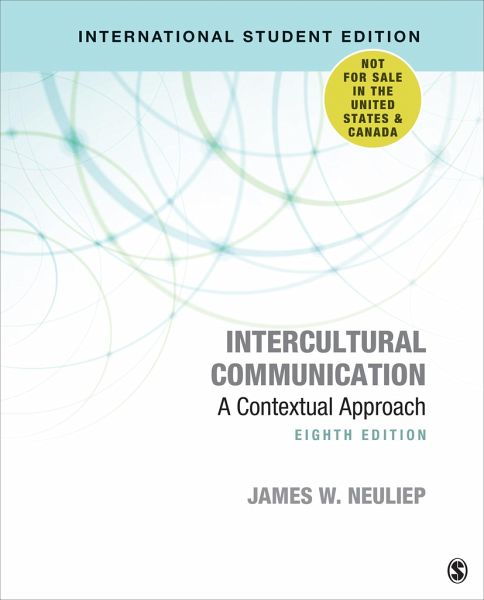
Intercultural Communication - International Student Edition
A Contextual Approach
Versandkostenfrei!
Versandfertig in 6-10 Tagen
41,99 €
inkl. MwSt.

PAYBACK Punkte
21 °P sammeln!
In this fully updated Eighth Edition of Intercultural Communication: A Contextual Approach, author James W. Neuliep provides a clear contextual model (visually depicted by a series of concentric circles) for examining communication within cultural, microcultural, environmental, sociorelational, and perceptual contexts. Beginning with the broadest context the cultural component of the model the book progresses chapter by chapter through the model, to the most specific traits of communication, verbal and nonverbal messages. Each chapter focuses on one context and explores the combination of fact...
In this fully updated Eighth Edition of Intercultural Communication: A Contextual Approach, author James W. Neuliep provides a clear contextual model (visually depicted by a series of concentric circles) for examining communication within cultural, microcultural, environmental, sociorelational, and perceptual contexts. Beginning with the broadest context the cultural component of the model the book progresses chapter by chapter through the model, to the most specific traits of communication, verbal and nonverbal messages. Each chapter focuses on one context and explores the combination of factors within that context, including setting, situation, and circumstances. Highlighting values, ethnicity, physical geography, and attitudes, the book examines means of interaction, including body language, eye contact, and the exchange of words, as well as the stages of relationships, cross-cultural management, intercultural conflict, and culture shock.












